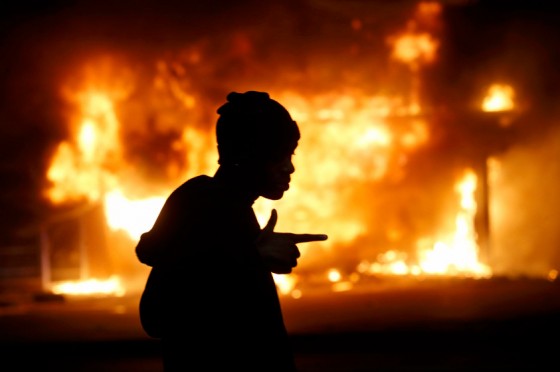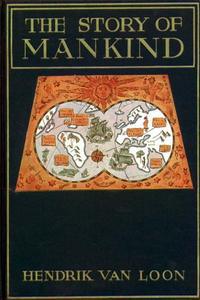Some of the warmest acknowledgments
we have received here and elsewhere:
At The Daily Stormer Black Swan said:
Fantastic website, especially the excerpts from Hellstrom. Keep up the great work, your website is an invaluable resource for us and I link to it whenever and wherever I can.

Guest commented on “Parting word”:
Really enjoyed your tract on the psychological culture of the Mexican Indian Civilization. Really thought provoking stuff.
Balrung commented:
I’m very sorry to see you go. You are a voice in the wilderness, and were very helpful in my racial awakening. Reading your blog hasn’t been just food for thought; it has also been a force for concrete action for me personally and those in my sphere of influence. Never have I heard someone speak with such passion and intensity as you. And never has it been needed so much rather than the “compromise” we get from too many who claim to be friends of the Aryan!
Richard commented:
Dear Chechar: Thanks for your great work. You have inspired me and my comrades, leaving a deep impact in our minds. On our blog we will translate your The Fair Race’s Darkest Hour. Greetings from Germany.
An email from Patrick:
Dear César: The high quality of your site and writings made me come out of my shell to express my appreciation, even admiration. We do seem to be in very close agreement on all key points. You may be even more of an absolutist and perfectionist than myself.
Snake commented on Day of Wrath:
A hearty thanks to you, César! Your writings have been crucial to my moral development these last few years (particularly the Himmler-esque pieces and your polemics against modern music).
A visitor from Belgium:
Dear César: Hereby I’d just like to let you know how much I appreciate the insights on your blog. I felt that I needed to send you this mail to remind you that your message inspires more people than you’d think. Most people—while greatly appreciative of your blog—will merely read it, but not comment. Therefore I’d imagine you’d sometimes feel like talking to a wall, which isn’t the case.
Chrisjankyj commented on “The Red Giant”:
This post and comments are so true, it’s a pity it falls on mostly deaf ears. This blog is amazing. I’ve spent almost three weeks straight reading this. My book reading has fallen by the way-side… I don’t have much else to add to this post. It moved me enough to comment. I feel exactly and have expressed to others the above points, only to feel the backlash. Christianity is the poison of all races along with the other Abrahamic or Adamic religions.
Cattle commented on “The One Ring”:
Dear Chechar: I just want to tell you that I think your blog is by far the most decent and esthetic white nationalist blog I have come across. Like you, I am looking forward to the Day of the Rope.
Mister Deutsch said:
You have dealt with the homosexual issue very eloquently. By far, you are the best thinker in modern WN to date that I have read (I include a lot of scholars in that category with the possible exception of Tom Sunic). Keep up the good work.
A comment by Vikingbitch:
The West’s Darkest Hour has taught me that I must hate in order to survive as a white person.
A comment by Kurwenal:
I have just finished reading both chapters of Hojas Susurrantes. Congratulations! The book is well-written, very touching and controversial (in a positive sense): “El Retorno de Quetzalcóatl”: Spine-chilling… I had nightmares last night. But also fascinating! Especially everything related to psychohistory and the evolution of consciousness.
A comment by Ivan Shatov:
First of all, fabulous blog. Absolutely fantastic. Thank you so much for your time and effort. When I first came across your initial blog I balked at the “antisemitism” and white nationalism. Your post on Pride and Prejudice notwithstanding I removed you from my links. But, I was fortunate to finally awaken.
Elviswinehouse commented on “New leaves”:
This condensation of the main points in March of the Titans has been extremely helpful to my understanding of Western history. The same can be said of what you have done with Hellstorm. I thank you very much.
In these modern times many folks—for various reasons—will not even begin to read an entire book (god forbid!). But the way you have ‘parcelled up’ Hellstorm and March of the Titans makes excellent reading and makes an excellent educational tool for the vast majority to get informed. It is a good idea to do this, and as useful propaganda, it is extremely effective. Just what we need! Again, many, many thanks my friend.
Mary commented on "The ascent of the soul":
A truly beautiful post, thank you. It captures the best of what you are 🙂
On The Daily Stormer Erik commented:
I really owe you for that blog you write. It is the best resource I have ever found for our White Race.
It really is a shinning tower of wisdom amidst the depraved junk of this Judeo-Western culture. I turn to it time and again, and I especially loved the information exposing Christianity, and the article on Lycanthropy. I read that particular one over and over as it lays out in chilling detail the ghastly future which awaits us and our women.
I can’t thank you enough.
IFA on “Civilisation's 'Man—the measure of all things'”:
Bravo on your insightful essay. Your sense of aesthetics is acute. I think you’re one of those rare birds: a Son of the West. You go beyond the insipid race-realism of culturally-violating white nationalists and espouse a return to European cultural values and concepts.
The majority of WNs are very lowbrow and, unbeknownst to themselves, agents of the Jewish and modernistic culture of decay. Don’t expect anything out of the overwhelming majority of white nationalists. They are degenerate down to the marrow.
Freedom Cobra said:
Your insights into psychiatry hit close to home. A rather important woman in my life has suffered immeasurably at the hands of the “mental health” industry. I’ve witnessed the drugging you mentioned in a previous post. Institutionalized horrors like these should fill nationalists with more dread than anything an external foe can do. So to cut my rambling short, thank you again!
Michael Wikander commented on “On music”:
I have been reading your articles with a lot of joy. I recognize many elements in your life, and it is heartening to meet someone who wrestles with these, especially Alice Miller and abuse. I loved your review of her Hitler nonsense! I agree totally that your musical tastes define who you are!…
Best regards, or better: Sieg Heil!
Hammerheart said:
OK I have read “Dies Irae” and “A postscript to Dies Irae”, and about 20 pages of material on either side… I have a “This…is…*it*!” moment. Thank god I found this material. Also, re: [Alice] Miller, your material basically theoretically predicts the Rotherham horror and, in hindsight, is prescient. OMG Chechar you is da bomb, homey. This is stupendous; this PDF monstronsity I will be reading and re-reading for a month. Oh thank god, I was beginning to question my sanity.







